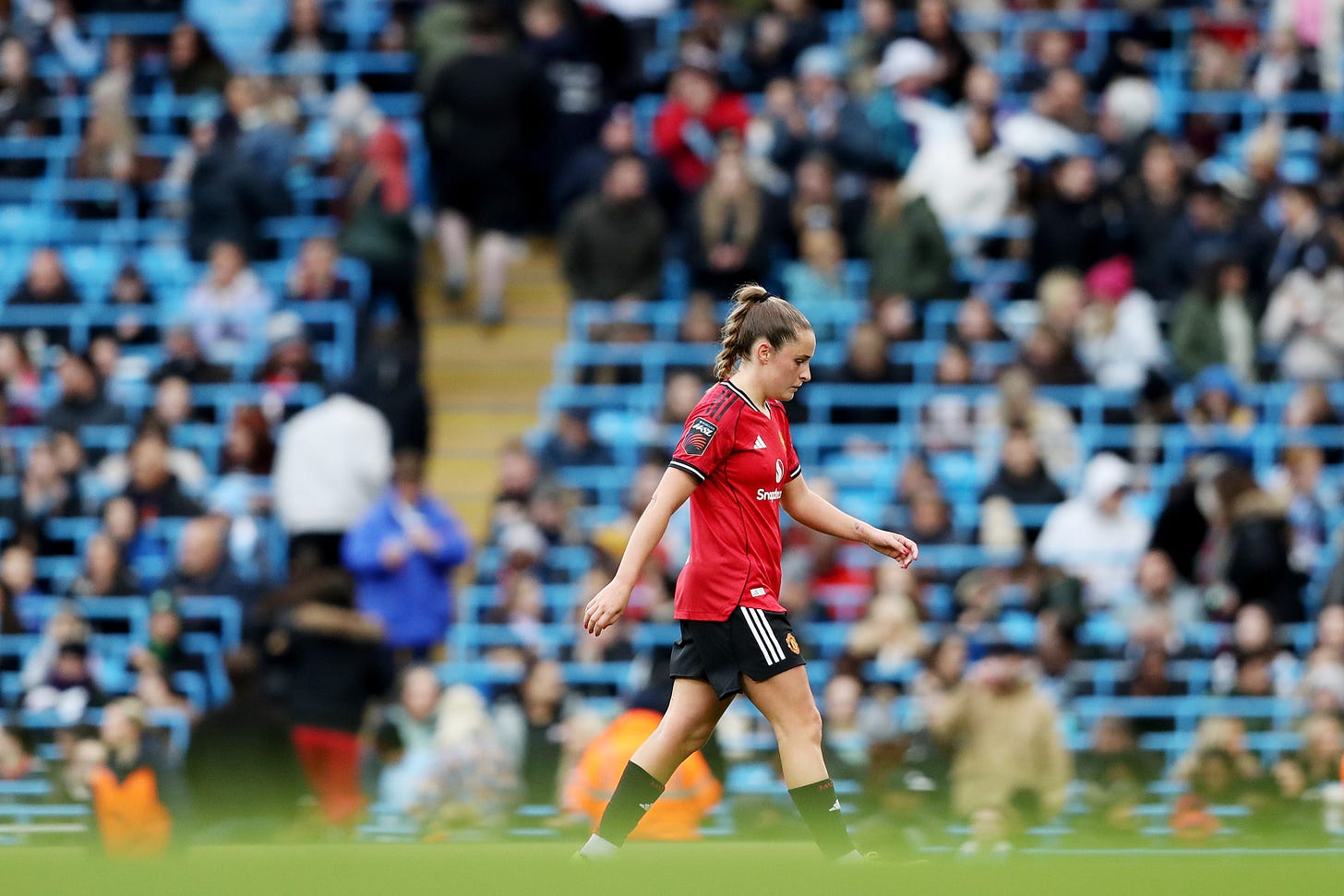United suffer humiliating 3-0 defeat to City in derby
Marc Skinner's side were outclassed in the derby as defensive frailties and fatigue exposed a squad stretched beyond its limits
Manchester United have lost back-to-back WSL games after being humiliated in the Manchester derby on Saturday lunchtime. City came away with the three points after scoring three goals inside the first half in a game convincingly won by the home side.
All the praise this season – and particularly following Wednesday night’s huge Champi…





